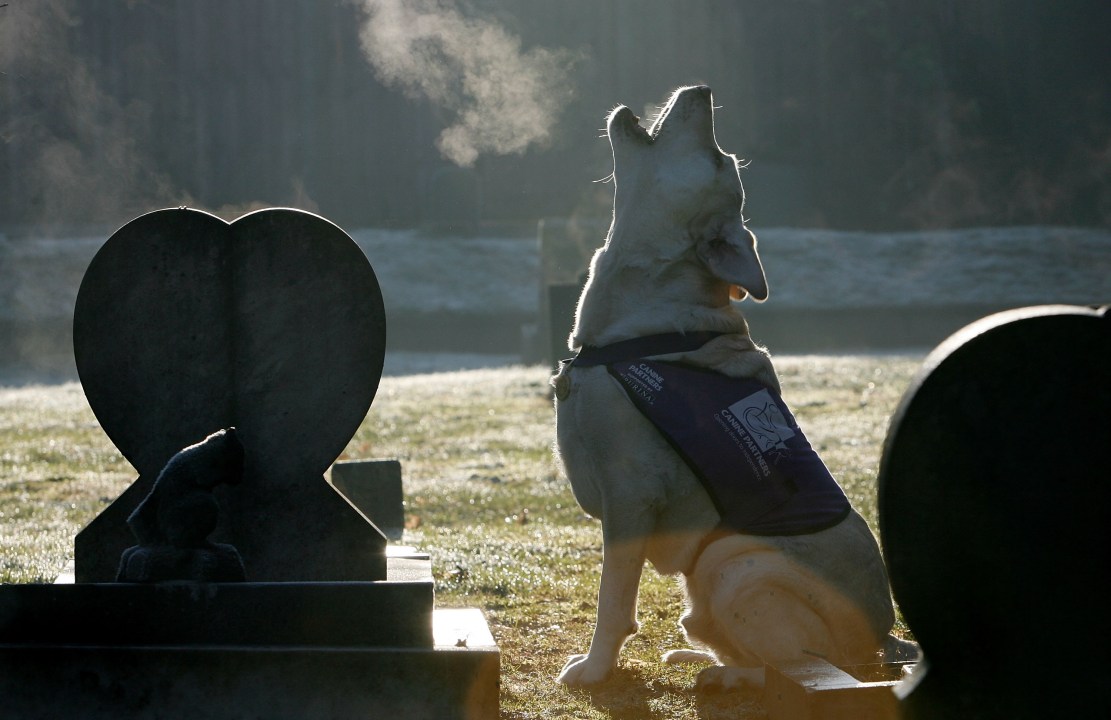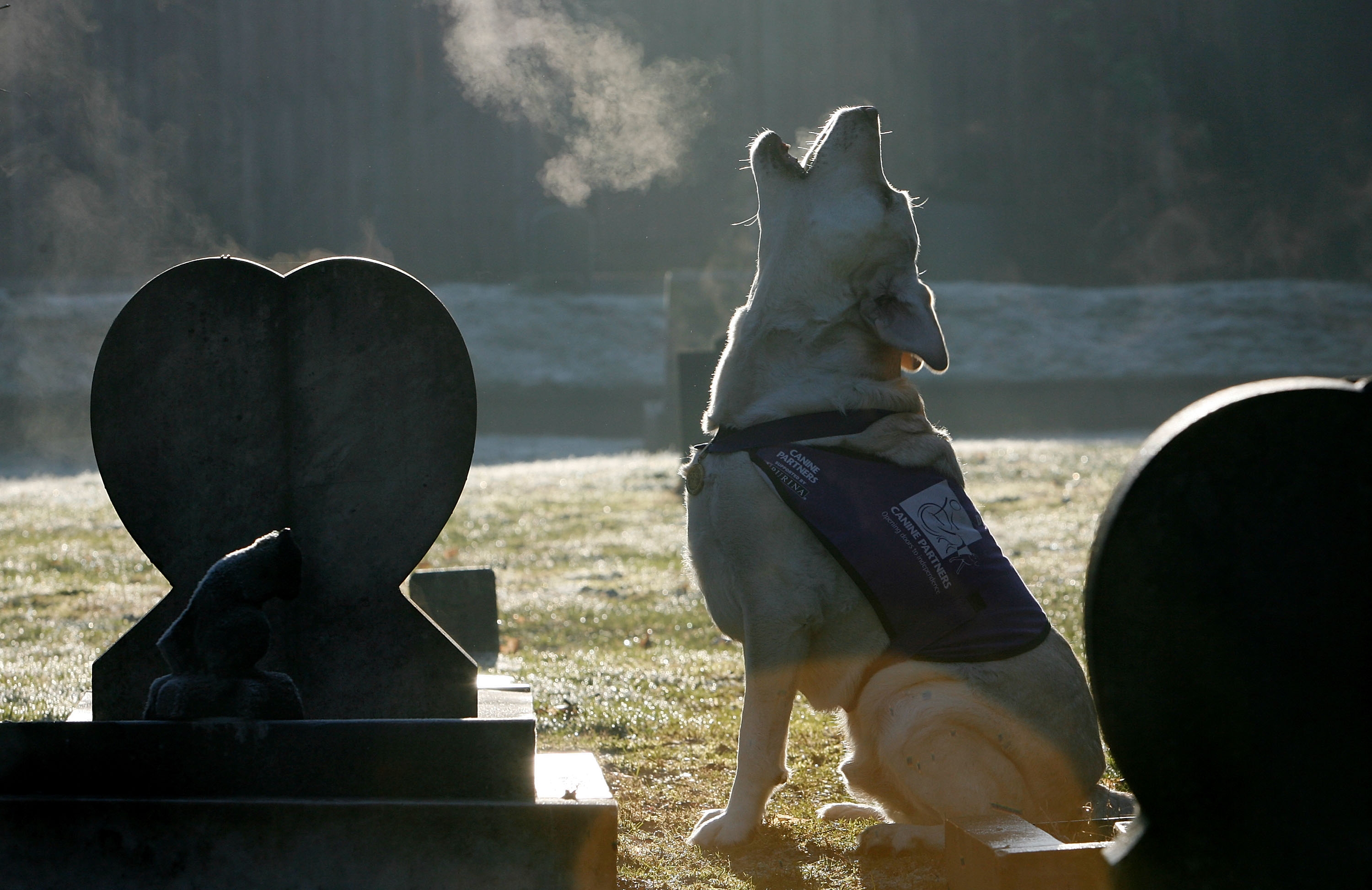The oddest thing about the Dickin medal awarded to a dog called Mali today, and given to animals from carrier pigeons to horses for ‘conspicuous gallantry or devotion to duty while serving or associated with any branch of the Armed Forces or Civil Defence Units’, is that it was instituted in 1943. Back then, there were umpteen examples of animals doing useful war work, including pigeons such as Winkie and Tyke (six of the first seven citations were to them) who helped rescue stranded airmen, and a mongrel called Tyke who sniffed out a number of Blitz victims. Naturally, there are bonds of affection and gratitude between the humans who used the creatures, and the animals. But you’d think, back then, that people wouldn’t try to foist human attributes like courage and devotion to duty on dogs and pigeons, the way we do.
Animals do behave bravely, as we would see it, but, if it’s not an error of taste to say so, they follow instincts and training and a bond with their trainers that plainly doesn’t equate to the attributes of the holders of the actual Victoria Cross with which this medal is invariably compared. Human beings know the potential consequences of their actions, they can weigh up risk in a way an animal does not; they act consciously as well as by instinct. So when we talk, as people will do today, about Mali and his sterling work in Afghanistan stiffing out explosives under fire as being ‘beyond the call of duty’ we ignore the reality that animals do not have a clue about it. I love dogs, but Mali searching methodically, repeatedly for rebels and explosives, even when injured, even when it exceeded his training, even when it generates a warm and fuzzy feeling in his human companions, does not quite constitute bravery as we know it.
There’s actually a rather useful way to understand the psychology of the Dickin medal in two lovely children’s books from 1943 by the illustrator and writer, Enid Marx, that have just been republished by Unicorn Press: ‘The Little White Bear’ (who helps two sailors whose ship was blown up) and ‘The Pigeon Ace’. That pigeon, called CooCoo, couldn’t wait to be called up for war duty as carrier pigeon; duly his time came and he and his wife FlutterFlutter were called up for action, which he couldn’t see enough of. His moment came when the plane in which he was being carried was shot down, the pilot released him and he flew off for help, in dark and the noise of gunfire, back to base “in the direction of Flutter Flutter and my master”, driven mad by thirst. But his tenacity won out: ‘I flapped down at the feet of my master.What a fuss he made of me! He called my Flying Ace and said I should certainly be mentioned in despatches’.
That projection of human emotion onto animals is ancient, edifying and certainly harmless. But it’s still a wilful category error to confuse the nature of pigeons, dogs and men. In this case, the one creature who knows about the call of duty is Mali’s handler; fortunately, he has had a gallantry medal too. Mali may just like a bone.








Comments